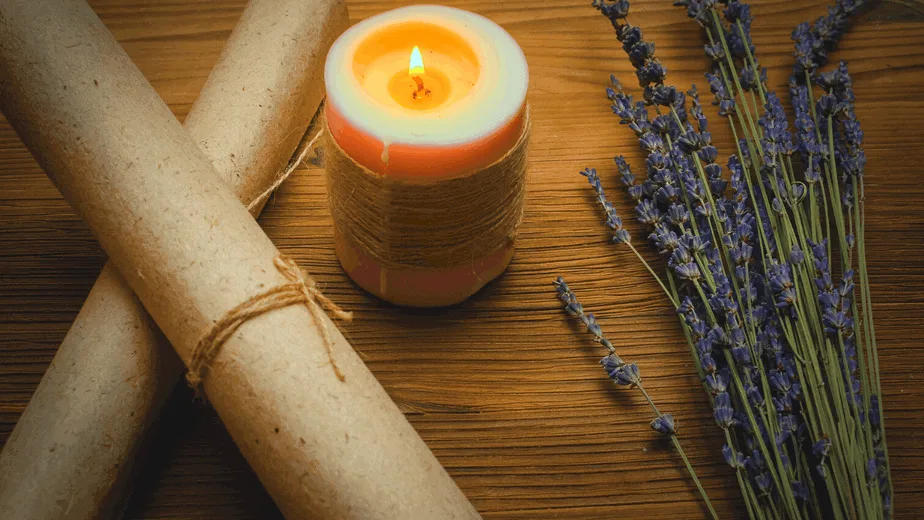Please note that posts on this site may contain affiliate links
Do you know the difference between Witch Magick, Paganism, and Wicca?
One of the first things I wondered, when I started on this magickal journey, was what the big deal about Wicca was.
Of course, I’d heard it so many times. I’d seen people on television who called themselves Wiccan and seemed very silly.
I’d seen people who were very smart and called themselves Wiccan, too.
But one of the biggest lessons I’ve learned is not to trust portrayals of anything on TV.
Wicca intersects between two related subjects: paganism and magick.
And they intersect with each other, as well. But if they’re so similar… what’s the difference between magick, paganism, and Wicca?
Well, let’s start by making the clearest distinction, the one between paganism, and between magick.
- What’s Magick? What’s Paganism? What’s The Difference?
- Is Wicca Different From Paganism And Magick?
- What Is An Eclectic?
- The Difference Between Magick, Wicca, and Paganism
- Summary
- Exploring Different Traditions of Wicca
- Common Practices and Rituals in Magick, Paganism, and Wicca
- The Role of Nature in Magick, Paganism, and Wicca
- Ethical Considerations in Magick and Wicca

What’s Magick? What’s Paganism? What’s The Difference?
Magick is relatively easy to define: It’s imposing your will onto the world.
In some ways, everything you do is magick, because everything you do is ultimately driven by your desires.
So when you, for example, buy a latte, you may think that you did it with money—but in reality, you bought your overpriced, but oh, so delicious coffee with the power of your mind.
Your mind just needed to spend a little money along the way.
Paganism is a category of religious practice, and part of that religious practice may involve magick.
But it may not.
There’s a lot of division in paganism.
This can be regarding whether or not the practitioner cares much either way about history.
Or whether they accept personal revelation.
Do they actually hang out with other pagans?
Do they have to stick with just a few, pre-selected Gods and Goddesses, or do they think Marduk can actually hang out with Mithra and with the Morrigan at the same time, all there on the same altar.
In short: they’re totally separate.
There’s a little overlap, but there are fields of magickal practice that don’t really overlap with paganism, like a lot of right-hand-path type stuff, and there’s fields of paganism where the closest they get to magick is prayer, like Nova Roma.
What all of this adds up to is, paganism is about the Gods, and magick is about the ability to create desired effects in the world.
Maybe the Gods are willing to create that desired effect for you; maybe you can create a desired effect to please the Gods or with their help.
But there’s more space where they don’t overlap than where they do.
Is Wicca Different From Paganism And Magick?
All of that is well and good, but it doesn’t answer the central question.
What’s the difference between those two things and Wicca?
Is it a magickal tradition?
Sure it is. One of the central parts of any wiccan’s life is the altar work.
Purifications, self-dedications, divination, all the -ations.
Maybe not libations—I haven’t met one yet, but I’d put actual, physical money down that there are dry Wiccans out there.
Is it religious? You better believe it, buster.
There’s a lot of ties in with traditional folk religion with even the stuffiest, most conservative Wiccan… though I’m not sure how stuffy anyone can be when they’re following an alternative religious path.
If you trust intro-to-Wicca books like Scott Cunningham’s excellent Wicca: A Guide For The Solitary Practitioner, the fundamental belief is in a duotheistic world, with a God who is reborn with each year, and a Goddess who is maiden, mother and crone.
There are a dozen or more different traditions of Wicca; some are lineages, where a Witch can trace their teacher, who learned from their teacher, who learned from Gerald Gardner himself.
Others are defined more by their beliefs, like Dianic Wiccans who really only worship the Goddess, and traditionally don’t really recognize men or the male God.
But that’s getting into hair-splitting territory.
If there’s one thing I’ve learned, as a baby witch, it’s that pagans and wiccans and witches can get into all the navel gazing that they like.
It’s one of my favorite qualities!
But it’s not what I’m here to do today.
What Is An Eclectic?
The real difficulty in distinguishing the three comes in with eclectic Wiccans.
I’m not about to criticize them, but I am about to say, the difference between eclectic pagans and eclectic wiccans is how many letters they felt like writing in their title.
Both are free-thinking folks who decided that they wanted to pick and choose what their belief system was.
Which means that ultimately, you can’t differentiate because they’ve chosen to remove the walls that separate one thing from another thing.
And guess what? Almost all eclectic practitioners apply this same syncretism to magick.
So you’ll find people who get a little qabalah in their herbology and a little sex magick in their energy work, and it’s all fine as long as it works for you, you feel me?
But because you can’t put a cage around a wild horse like that, I won’t even try to put our eclectic readers into a box!
The Difference Between Magick, Wicca, and Paganism
Wicca is not the biggest movement in alternative spirituality.
I think it’s the one with the most visibility, and I think it’s the most accessible in some ways.
I think, if I went back to my factory job and started asking around, ignoring the fella who used to date a witch, I’d get more people with a good idea of what Wiccans do than who have a good idea what, say, Druids do.
And I think you’d get a lot more people who know basically what Wiccans get up to than would know, say, what the 10 Sephiroths are, except maybe they’d seen a Tree of Life before.
But if you were to draw circles for this venn diagram, Wicca is the biggest circle of the three.
It encompasses the most “stuff.” It’s explicitly religious.
It’s explicitly magickal. To say that they’re completely distinct is… well, it’s just not correct! But we can try to draw some lines.
Traditional Wicca is centered around a coven.
Most traditional schools of magick don’t rely on large, multi-person ceremonies—they gather together because they’re mystery cults in the traditional sense, and you don’t know everything until you’re a 9th-degree such-and-such and you’ve ascended the Tree of Life, and you’ve personally met the deity and had a beer with him.
Sorry, dry-Wiccan readers, but I guess you’re just never going to make it to the top of the OTO.
Then again, maybe deity can understand your dedication to good behavior, and gives you a pass.
This also separates out Wicca from other neo-pagan practices, which don’t necessarily require groups, either.
There are learned people, and there are celebrations, but there’s no priests, and there’s no covens needed.
If you do some Googling, you can find out how to make a great, correct sacrifice from the safety and comfort of your living room.
At that point, Covens for, say, Druidry or Asatru start approaching social clubs, where the central connective tissue is your shared religious belief rather than the need to have other folks around to do rituals with.
Now on the other hand, let’s make a quick exception, and talk about where you can’t draw a line.
You can’t say, “Wiccans worship The Goddess and Paganacht is for worshiping Brighid and the Morrigan!”
The Goddess, in Wiccan thought, is like… all of ‘em.
The God is also all Gods. If it’s a little confusing to you, it’s a little confusing to me, but if I think pretty hard, I feel like I can get it just on the tip of my tongue.
So let’s get this all wrapped up, because I’m worried that if I’m not careful, I’ll overstay my welcome here.

Summary
If we have to keep things simple, then there are three major points to remember:
- Magick is about cause and effect.
- Paganism is about following and revering the deities of the old world.
- Wicca is about honoring the God and Goddess like Paganism, and doing spells like Magick, but not all spells, and not all ways.
If it seems like I’ve glossed over a lot, it’s because I have.
Like I said before: I want to look at the big picture, and that means that it’d be very slow and inefficient for me to say, “Well, on one hand, Z. Budapest’s Dianic Wiccans practice in this way, and that’s different from Gardnerian and Black Lodge Wiccans, and most clearly aligns with such-and-such magickal tradition…” because it’s outside my realm of knowledge, it’s insulting to people who I’m doing research on rather than getting to know, and worst, I could totally bork the accuracy!
Which means that I had to be pretty vague!
I would love to get into a serious deep-dive into any of these subjects, though some are going to be harder for me to get into than others, since some have requirements I simply won’t be able to meet.
Others are going to be complex enough subjects that they’re not going to be accessible to me for a very long time!
For now, though, I hope that you’ve learned a little about the differences, because I know that when you’re just starting out, a lot of this stuff can be confusing.
If you’re struggling with anything, don’t be afraid to reach out, whether that be to us, or to the broader internet.
There are so many people online who want nothing more than to help you, and some of them are going to disagree with each other, but they all mean really well, even if sometimes it’s hard to see how.
We’re all in this together, and you can find the path that’s right for you.
Don’t be afraid to dive in: there’s always someone around ready to throw you a life preserver.
Exploring Different Traditions of Wicca
When exploring the traditions of Wicca, several distinct paths come to the forefront, each offering its own unique set of beliefs and practices. Understanding these traditions can provide valuable insight into the rich diversity of Wiccan spirituality.
Gardnerian Wicca
Gardnerian Wicca is one of the most well-known Wiccan traditions, and it traces its origins to the UK in the mid-20th century. It was developed by Gerald Gardner, who is often referred to as the “father of Wicca.” Unlike some other Wiccan paths, Gardnerian Wicca is an initiatory tradition.
This means that individuals must be initiated by an existing Gardnerian witch in order to be considered a “true” Gardnerian. The tradition places great emphasis on secrecy and the use of an original Book of Shadows for rituals and magic. Gardnerian covens traditionally have 13 members, and the deities worshipped include the Horned God and the Mother Goddess.
Dianic Wicca
Dianic Wicca stands out as a feminist tradition that originated in the United States. Unlike traditions that emphasize gender polarity, Dianic Wicca focuses solely on the supremacy of the Goddess. The tradition encourages practitioners to be politically and socially aware of issues affecting women.
Dianic covens typically have a non-hierarchical structure, and members come together for Esbats, Sabbats, and other significant occasions. While some forms of Dianic Wicca admit men into covens, the original lineage founded by Zsuzsanna Budapest in the 1970s remains female-only.
Alexandrian Wicca
Alexandrian Wicca is another prominent tradition that shares similarities with Gardnerian Wicca. It was created by Alex Sanders and Maxine Sanders in the 1960s, and it incorporates three degrees of coven initiation, with a High Priestess as the leader.
The tradition adds to the worship of deities by including the archetypes of the Oak King and the Holly King. Alexandrian Wicca is known for its emphasis on ceremonial magic and Hermeticism, and it allows for more flexibility and adaptability in spiritual practice.
Each of these Wiccan traditions provides a unique approach to spiritual practice and offers its own perspective on the divine. Whether Gardnerian, Dianic, or Alexandrian, each tradition has made valuable contributions to the diverse tapestry of Wiccan spirituality.
Common Practices and Rituals in Magick, Paganism, and Wicca
There are some shared practices within magick, paganism, and Wicca that allow practitioners to connect with the divine, celebrate the cycles of nature, and manifest positive change. Understanding these common practices can shed light on the difference between Wicca and pagan traditions, as well as the eclectic approaches adopted by some practitioners.
Wiccan Rituals and Magick
Wiccan rituals often take place within a consecrated circle, serving as a sacred space for practitioners to conduct their ceremonies. Within this circle, an altar is set up as a focal point, and various ritual tools are used, including a chalice, a pentacle, a wand, and an athame. Rituals are performed with the intent of harnessing the willpower and energy of participants to bring about desired outcomes, such as healing, protection, and abundance.
This process is often referred to as “magick.” Most Wiccans adhere to the ethical principle of the Wiccan Rede, which encourages positive and ethical practices.
Paganism and Eclectic Paganism
Paganism is an umbrella term that encompasses a wide range of earth-based spiritual traditions, and Wicca is one of the many paths that fall under this category. While there is overlap between Wicca and other pagan traditions, it’s important to recognize that not all pagans are Wiccan, and practices can vary greatly between different pagan paths.
Eclectic paganism is a more individualistic approach, where practitioners may draw from various traditions to create a spiritual practice that resonates with their own beliefs and experiences. Eclectic pagans may incorporate elements of pagan magick, rituals, and symbolism from multiple sources, often blending ancient and modern practices.
Eclectic Wicca and Neo-Paganism
Similarly, eclectic Wicca refers to a Wiccan practice that allows for greater flexibility and personalization. Eclectic Wiccans may incorporate elements from different Wiccan traditions, as well as practices and beliefs from other spiritual paths. This approach allows for a more diverse and adaptable practice that may include various forms of eclectic magick, meditation, and ritual.
Neo-Paganism is a broader term that encompasses contemporary spiritual movements that draw inspiration from pre-Christian and indigenous religions. Eclectic neo-pagan practitioners may honor deities from various pantheons, celebrate seasonal festivals, and engage in nature-based rituals. Just like eclectic Wicca, eclectic neo-pagan practices allow for the integration of different spiritual paths in a way that aligns with the individual’s values and worldview.
What is Magick?
Magick, in the context of Wicca, paganism, and other esoteric traditions, refers to the practice of directing one’s will and intention to bring about desired changes in the physical or metaphysical realms. Magick is often performed through rituals, the use of symbols, and the invocation of deities or elemental forces. It is distinct from stage magic or illusion, and its purpose extends beyond entertainment. Practitioners of magick believe in their ability to influence their surroundings and manifest positive outcomes, whether for personal growth, healing, or the well-being of others.
In summary, the shared practices within magick, paganism, and Wicca are rich and diverse, and they offer practitioners various ways to connect with the natural world, honor the divine, and explore their own spiritual paths. Whether one identifies as a Wiccan, an eclectic pagan, or an eclectic neo-pagan, these practices provide a framework for self-discovery, growth, and connection with the greater mysteries of life.
The Role of Nature in Magick, Paganism, and Wicca
The role of nature is fundamental in the beliefs and practices of nature worship, which encompasses various traditions such as magick, paganism, and Wicca. At the core of these beliefs is the concept of animism, which holds that all elements of the natural world—be it plants, animals, mountains, or rivers—have their own spirit or essence. By forging a deep connection with nature, practitioners seek to enhance their spiritual and magical practices, drawing on the power of the earth to enrich their lives and experiences.
Nature Worship and Animism
Central to nature worship is the practice of animism, the belief in the spiritual essence of all living and non-living things. Practitioners of magick, paganism, and Wicca often see nature as a living entity, teeming with energy and consciousness.
They believe that by attuning themselves to the rhythms of nature and recognizing the interconnectedness of all things, they can access the wisdom and guidance of the earth. This connection with nature is cultivated through spending time in natural settings, meditating, observing the cycles of the seasons, and honoring the spirits of the land.
Earth Power and Green Magic
Green magic, also known as earth magic or natural magic, is a practice that harnesses the energies of the earth to perform nature magic spells and rituals. Practitioners of green magic often use natural materials such as herbs, crystals, and stones in their workings, drawing on the inherent power of these elements to achieve their intentions.
For example, they may use herbs for healing, protection, or prosperity, or work with the phases of the moon to align their spells with the ebb and flow of lunar energy. Green magic places a strong emphasis on living in harmony with the earth, showing respect for the environment, and making ethical choices in one’s practices.
Magic in Nature and Everyday Life
The magic in nature is not limited to grand rituals or ceremonies; it can also be found in the everyday moments and experiences that bring individuals closer to the natural world. Whether it’s tending to a garden, walking in the woods, or simply observing the beauty of a sunset, these experiences serve to deepen the bond between practitioners and the earth.
By becoming more aware of the magic in nature, individuals are empowered to make choices that benefit the planet, such as reducing waste, supporting sustainable practices, and advocating for the protection of natural habitats. In this way, the practice of nature worship extends beyond the realm of the spiritual and into the realm of the practical, encouraging individuals to live in a manner that honors and cherishes the earth.
The Multifaceted Nature of the Earth
The practice of nature worship also involves embracing and accepting the diverse and sometimes paradoxical aspects of nature. Nature is simultaneously nurturing and destructive, serene and wild, benevolent and indifferent.
Practitioners recognize the dualities within nature, understanding that it is through these contrasts that the true essence of the earth is revealed. For example, a thunderstorm may bring both life-giving rain and powerful winds that uproot trees. It is through embracing these dualities that individuals can develop a holistic and authentic relationship with the natural world.
Rekindling Our Connection to Nature
In modern times, many people have become disconnected from the natural world due to urbanization, technology, and fast-paced lifestyles. However, the desire to reconnect with nature and rediscover its magic is very much alive.
Through practices such as meditation, ritual, and mindful observation, individuals can rekindle their connection to the land and the spirits that dwell within it. By fostering this connection, practitioners are reminded of their place within the greater web of existence and are inspired to live in a way that reflects reverence and gratitude for the earth.
In conclusion, the role of nature in magick, paganism, and Wicca is one of profound significance. It is a source of wisdom, power, inspiration, and spiritual nourishment.
By honoring and connecting with nature, practitioners tap into the earth’s energies to enhance their magical practices and to live in harmony with the world around them. Whether through green magic, nature magic spells, or simply a quiet moment of reflection in the great outdoors, the magic in nature offers a path to deeper self-awareness, spiritual growth, and a greater sense of belonging within the natural world.
Ethical Considerations in Magick and Wicca
There are many ethical considerations in magick and Wicca that practitioners must keep in mind as they embark on their spiritual journey. These ethical guidelines provide a framework for how individuals interact with the world around them, use their power, and impact the lives of others.
Witchcraft Ethics and the Wiccan Rede
Central to witchcraft ethics is the Wiccan Rede, a fundamental code of ethics followed by Wiccans and many other practitioners. The Wiccan Rede states, “An it harm none, do as ye will,” and serves as a guiding principle for ethical behavior.
The Rede emphasizes the importance of avoiding harm to others and encourages individuals to act according to their true will. The distinction between “Will,” one’s true desires, and “Want,” fleeting impulses, is crucial. Practitioners are urged to make choices based on their deeper values and avoid actions driven by fleeting emotions, especially if those actions could harm others.
Being a Green Witch
Being a green witch involves embracing a path centered on living in harmony with nature. Green witches have a unique responsibility toward the environment, and their ethical guidelines stress ecological balance and sustainability.
These witches work closely with nature’s cycles, plant and animal energies, and the elements. They seek to honor the interconnectedness of all life, minimize harm to the environment, and use natural materials in a respectful and sustainable manner. Green witchcraft is about nurturing a deep connection with the Earth and using that connection for healing and positive transformation.
The Threefold Law and Other Considerations
The Rule of Reciprocity, also known as the Threefold Law, is another key aspect of pagan morality. It suggests that the energy a person sends into the world will return to them threefold. Whether sending out curses, hexes, or blessings, the impact is believed to return to the sender, magnified three times. This pagan rule serves as a reminder to be mindful of one’s actions and intentions, and to use magick responsibly.
Exploring Closed Practices and Manipulative Magic
Ethical considerations also extend to the use of closed witchcraft practices and manipulative magic. Closed practices are specific to certain cultures and should not be appropriated by individuals outside of those cultures. Respect for the origins and context of such practices is essential. Additionally, manipulative magic, which involves controlling or influencing the will of others, raises ethical concerns. Witches must consider the implications of their actions, including issues of consent and autonomy.
Tips for Beginner Witches
For beginner witches, understanding the rules of Wicca and pagan morality is a vital step in developing one’s practice. It’s essential to define one’s ethical guidelines, learn about the history and principles of the craft, and engage with the community. Exploring ethical questions, reflecting on the Wiccan Rede, and being mindful of the Threefold Law are all valuable practices. Ultimately, witchcraft is a deeply personal journey, and ethical considerations serve as a compass to navigate the complexities of the craft with integrity and wisdom.
- Working With Hekate During The Full Moon
- 20 Love Spells: From Love At First Sight To Break Up
- A Witch's Guide to Setting Goals and Achieving Them in the New Year
- Goal setting tips
- How to use the lunar phases for goal setting (new moon, waxing moon, full moon, waning moon)
- How to use planetary days and hours for goal setting ( Sun, Moon, Mars, Mercury, Jupiter, Venus, Saturn)
- How to use monthly correspondences for goal setting
- How to mix all of these for explosively powerful magic
- Easy Simmer Pot Recipes for Financial Abundance Using Herbal Witchcraft
- Business Abundance Simmer Pot
- Good Luck Simmer Pot
- Life Of Luxury Simmer Pot
- Money Drawing Simmer Pot
- First Of The Month Prosperity Simmer Pot
- Unemployment Protection Simmer Pot
- Manifest Gifts Simmer Pot
- Full Moon Witchcraft: Traditions, Correspondences And Rituals For Beginners
- Moon Sign Astrology: Your Emotions & Inner Self Revealed
- The Magic of Full Moon Tea: Recipes And Rituals
- Beginner Witchcraft: 15 Candle Spells for Beginners
- Lilith Spells: Tapping Into The Dark Divine Feminine And Feminist Activism
- Aphrodite Of Love And War: A Spell Book For Romantic Warfare
- Pagan Prosperity: Aligning with Abundance through Earth-Based Practices
- Creating Moon Water During the Waning Moon
- Ascending Into Greatness: Unleashing Your Rising Sign's Potential
- Sea Witchcraft: A Guide to the Magical Wisdom of Water
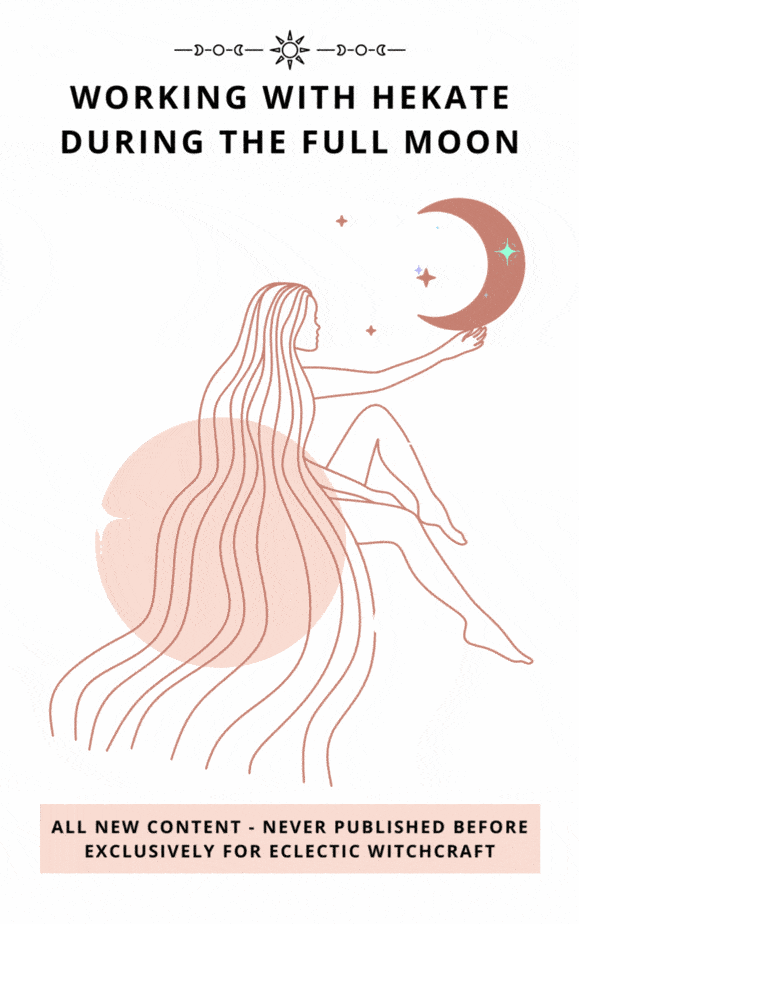
During the full moon, we call upon Hekate to assist us in clearing our past, releasing our fears, and opening ourselves to new possibilities. We ask her to help us gain clarity in our lives, to help us transform our inner worlds, and to allow us to move forward with courage and confidence.
It is said that Hekate helps us to overcome obstacles and challenges that stand in our way, and to achieve our goals. In addition to being a benevolent Goddess, she is also a fierce warrior. When we summon her, we invite her to help us take charge of our lives, to lead us into battle, and to fight for justice.
I am an eclectic witch - I've been practicing since 1974. As a student of the occult, working with astrology, tarot cards, runes, and numerology, I found that this was a very comprehensive and well written text on working with Hekate during the full moon. Highly recommended. - Gail Sager
Great read - a must have for anyone interested in working with the Goddess during the full moon! Highly recommended! - Luis Meyer
We earn a commission if you click this link and make a purchase at no additional cost to you.
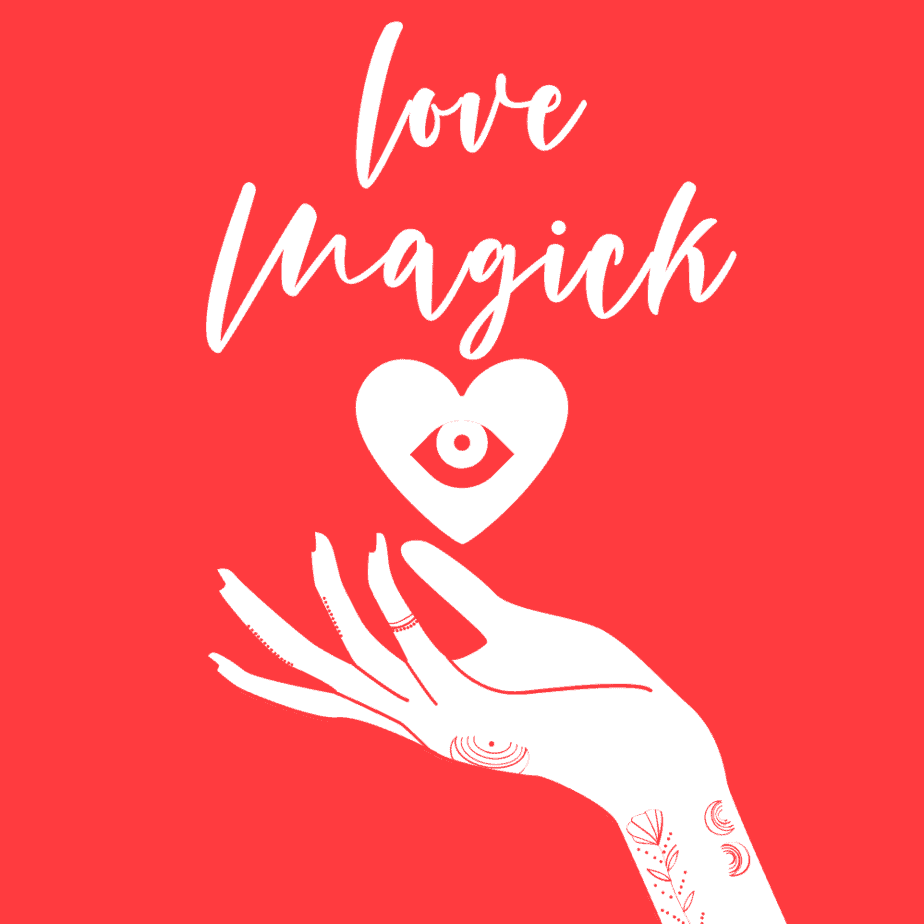
Find the perfect magic spell for your every romantic need. From first meeting a lover to breaking up or getting married, the perfect spell is in this book!
We earn a commission if you click this link and make a purchase at no additional cost to you.
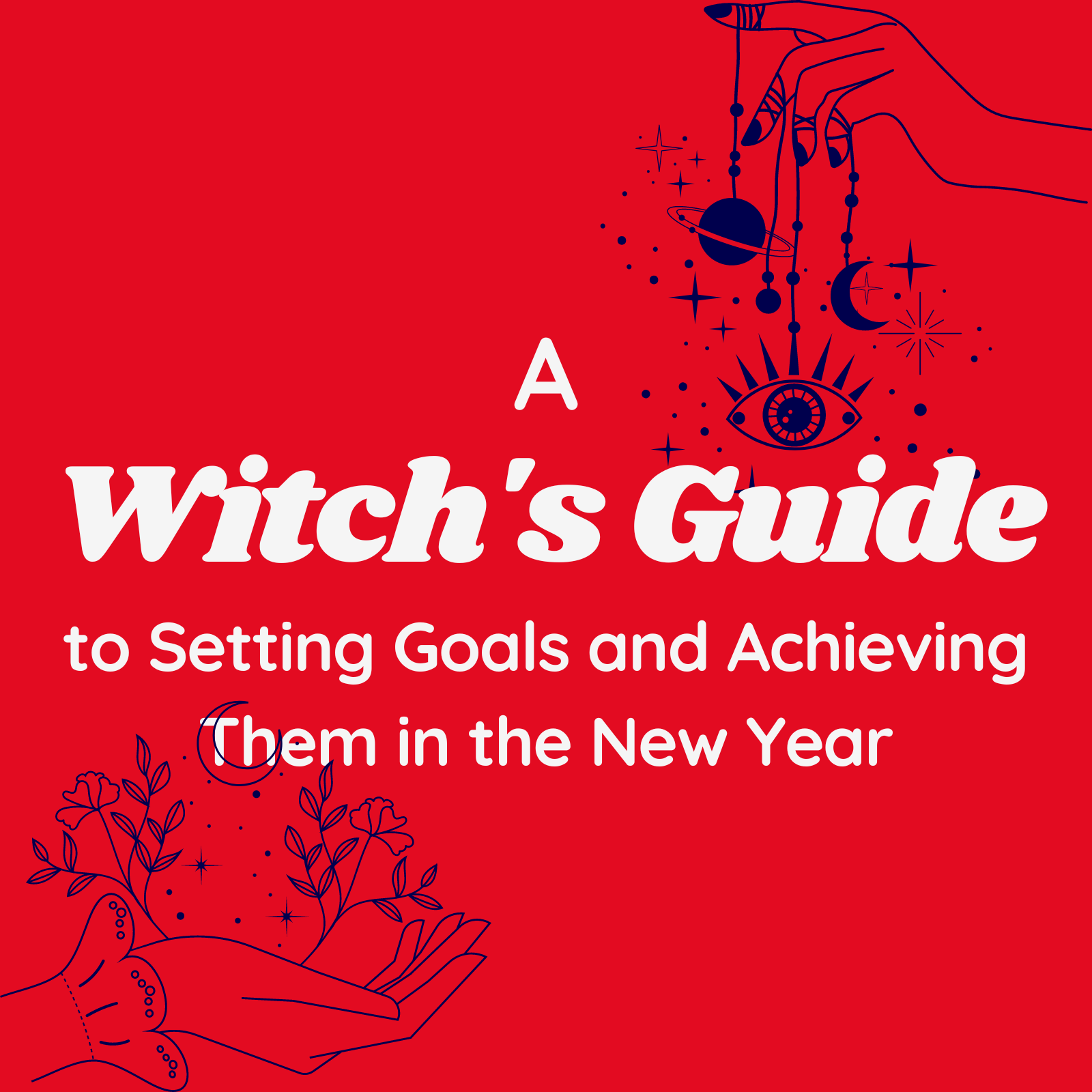
The New Year is a great time to start fresh, and what better way to do that than with some magical help? This witchy book will show you how to properly plan your new year's goals and when to cast them, using lunar phases, planetary hours, planetary days, and monthly correspondences.
This intermediate level guide includes:
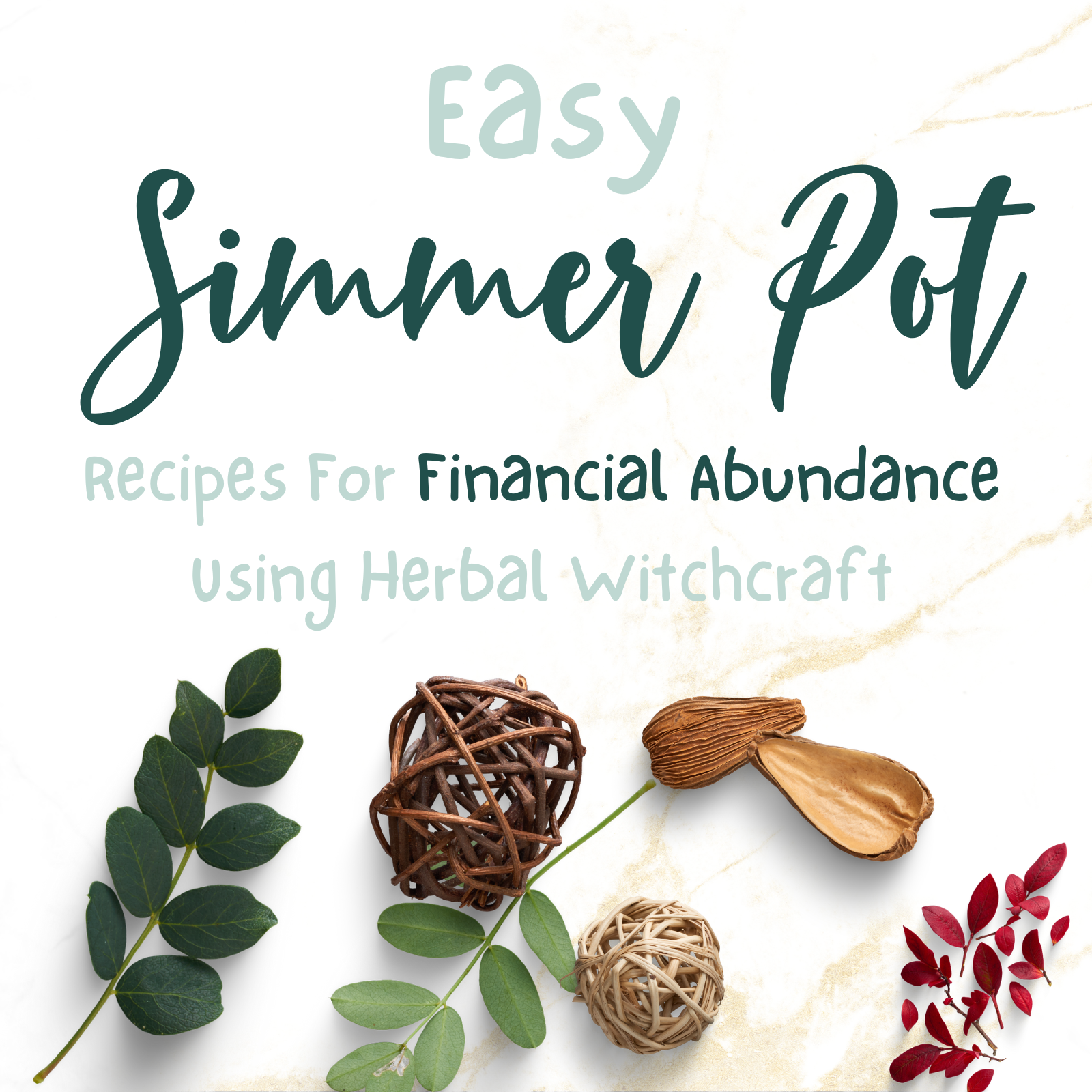
Are you ready to unleash the power of simmer pot spells in your life? In this guide, you'll learn everything you need to know about using these potent potions for wealth, abundance and success. From different recipes to ways of making them more powerful, this ebook will show you how to use simmer pots to create the life of your dreams. So what are you waiting for? Pick up a copy now and let the magic begin!
The different styles of simmer pots I will cover in this ebook are:
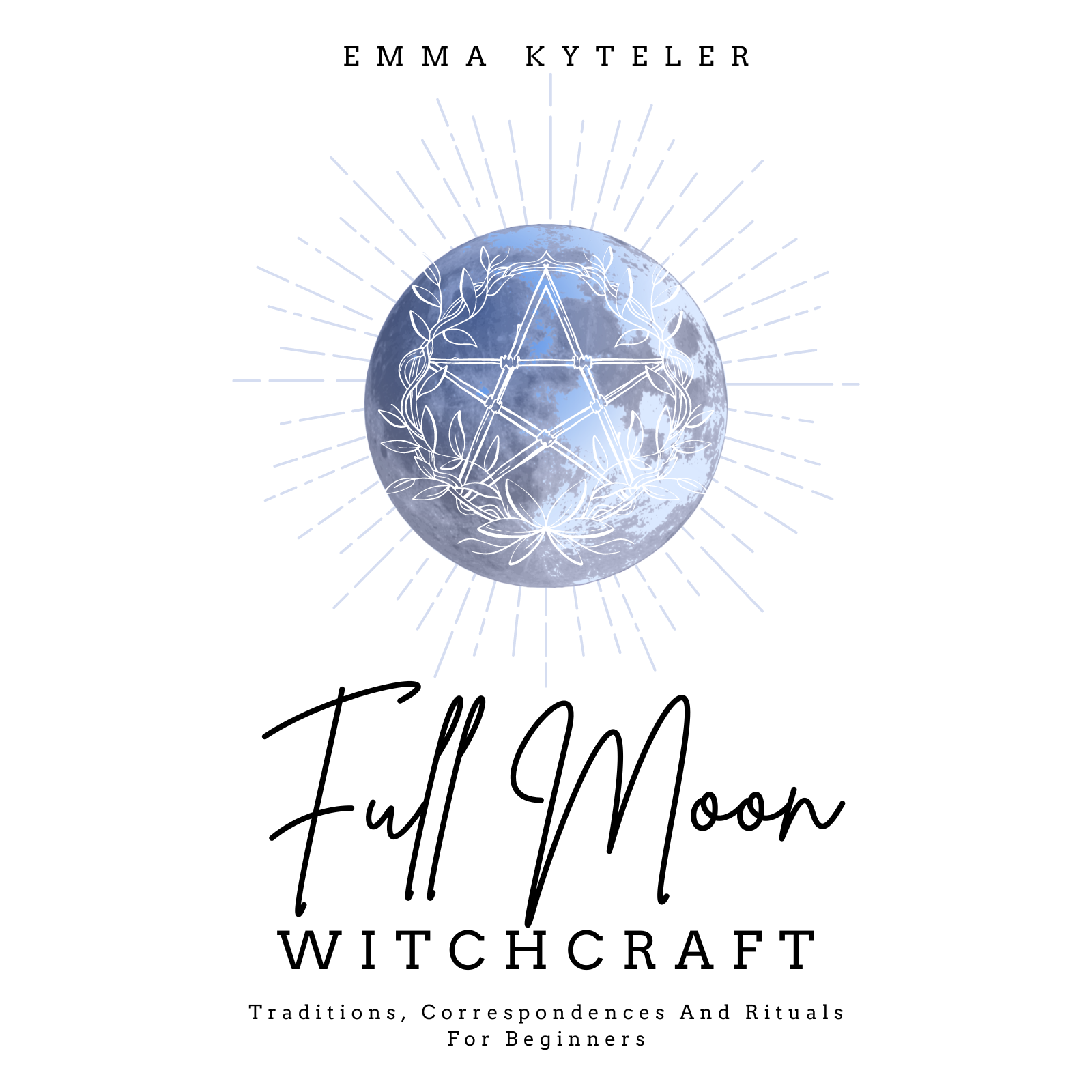
Take your moon magic to the next level with Full Moon Witchcraft. In this book, you'll learn how to work with the powerful energy of the full moon to create positive change in your life. From choosing the right moon phase for your spellwork to understanding how the full moon influences you based on your natal moon sign, you'll be equipped with all the information you need to work successfully with this potent lunar force.
You'll also find tips and tricks for working with full moon energy for love, money, healing, and even hexes and curses. So whether you're a novice witch looking to take your first steps into magical practice or an experienced practitioner looking to deepen your understanding of this vital component of witchcraft, Full Moon Witchcraft has everything you need!
We earn a commission if you click this link and make a purchase at no additional cost to you.
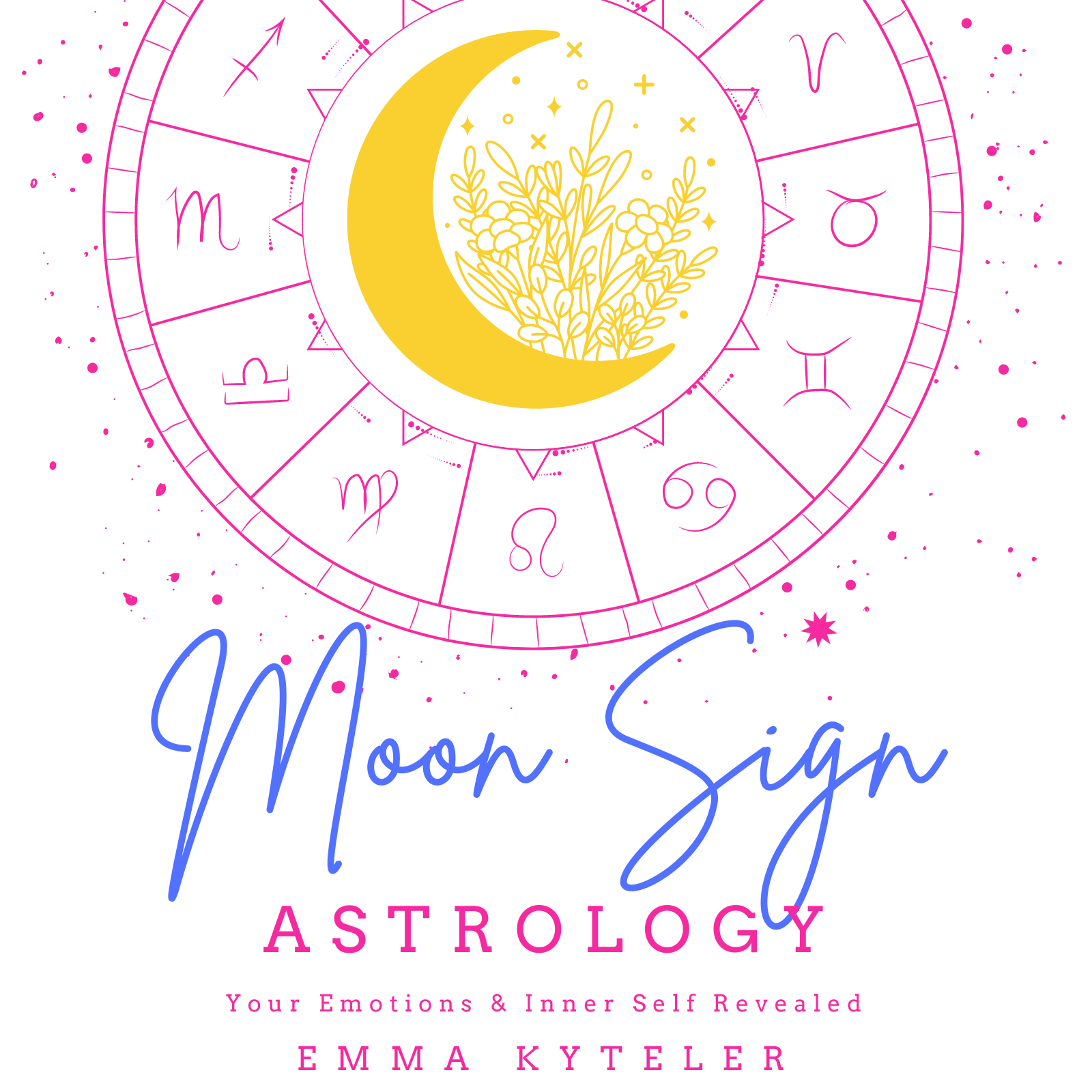
Learn the deepest secrets of your moon sign in this comprehensive guide!
By understanding your moon sign, you can get a much deeper insight into yourself – both on an emotional level and in terms of your true inner desires. With this knowledge at hand, you'll be able to make more informed choices about all areas of life that impact you, from relationships to career paths.
In this guide, we'll cover everything you need to know about moon sign astrology – from the basics of each sign to how it affects your moods and emotions. We'll also explore what your unique moon sign means for your spiritual journey and witchcraft, and how you can use this information to create the life you've always wanted.
So whether you're just getting started with learning about astrology or you're a seasoned pro, this guide will give you the insights you need to understand your moon sign like never before.
We earn a commission if you click this link and make a purchase at no additional cost to you.
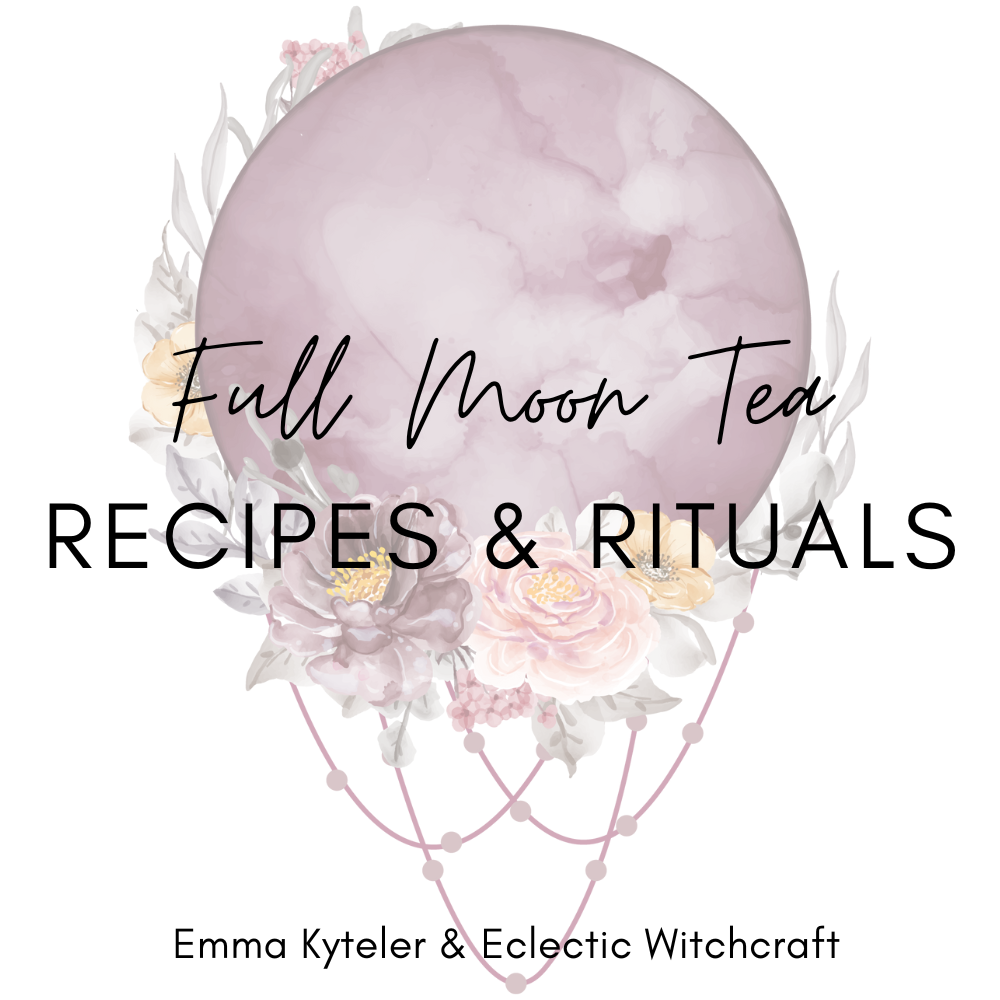
Indulge in the enchanting power of the full moon with "The Magic of Full Moon Tea: Recipes And Rituals" - the ultimate guide to brewing delicious and spiritually nourishing herbal teas.
This book will lead you on an unforgettable journey of full moon energy, teaching you how to select the right ingredients, master the art of tea-making, and create your very own personalized blends.
Immerse yourself in the magic of full moon tea ceremonies and discover how to incorporate them into your spiritual practice. Whether you're a tea lover or a seeker of spiritual growth, "The Magic of Full Moon Tea" is the perfect companion to help you unlock the secrets of the universe, one sip at a time.
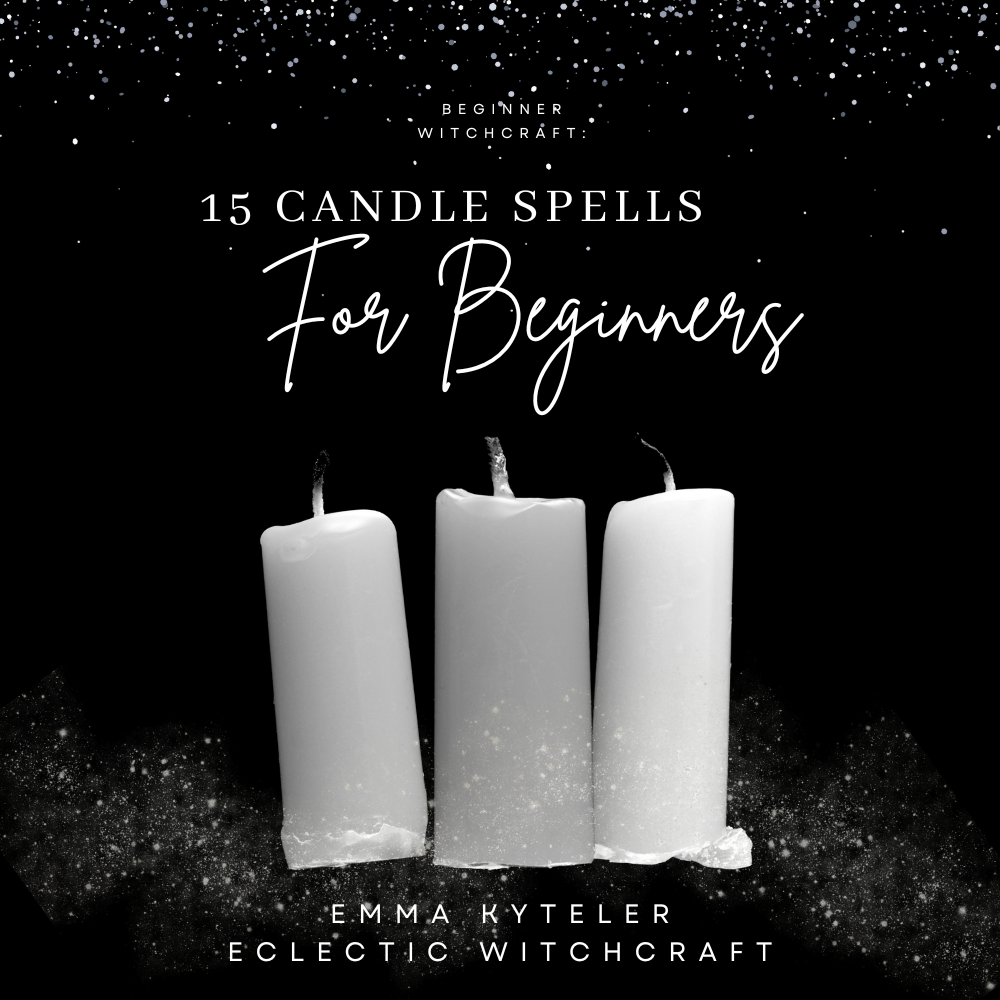
Discover the enchanting world of candle magic with "Beginner Witchcraft: 15 Candle Spells for Beginners," your ultimate guide to harnessing the power of fire, intention, and energy through the use of candles. In this comprehensive book, you'll learn the art of candle magick, an ancient practice rooted in the elemental power of fire and the symbolic meanings of colors. Whether you're new to witchcraft or an experienced practitioner looking to expand your knowledge, this guide has everything you need to embark on your magical journey with confidence.
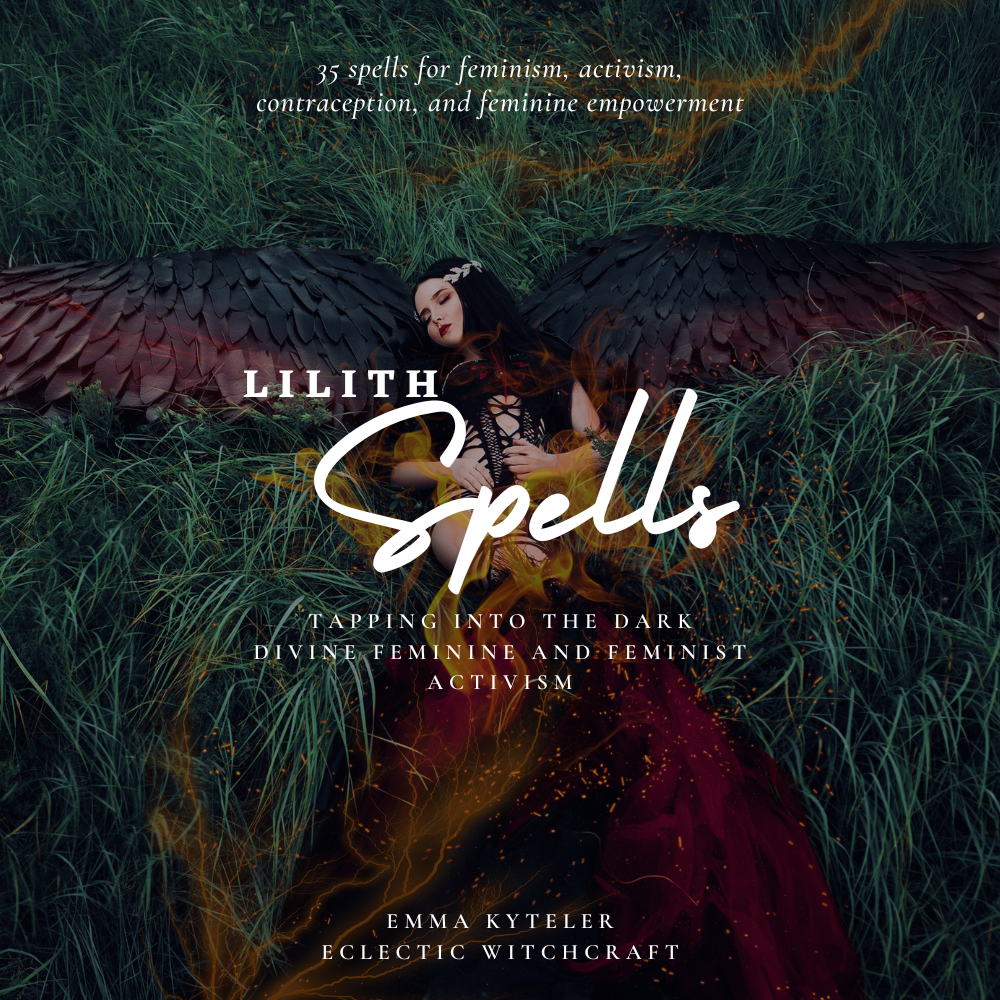
Delve into the mystical world of "Lilith Spells: Tapping Into The Dark Divine Feminine And Feminist Activism," a powerful grimoire that will guide you on a transformative journey through the realms of Lilith, the first wife of Adam, feminist icon, and demon goddess. Unearth the secrets of this enigmatic figure, who embodies the essence of feminine power, independence, and rebellion against patriarchal oppression. Includes 35 unique spells.
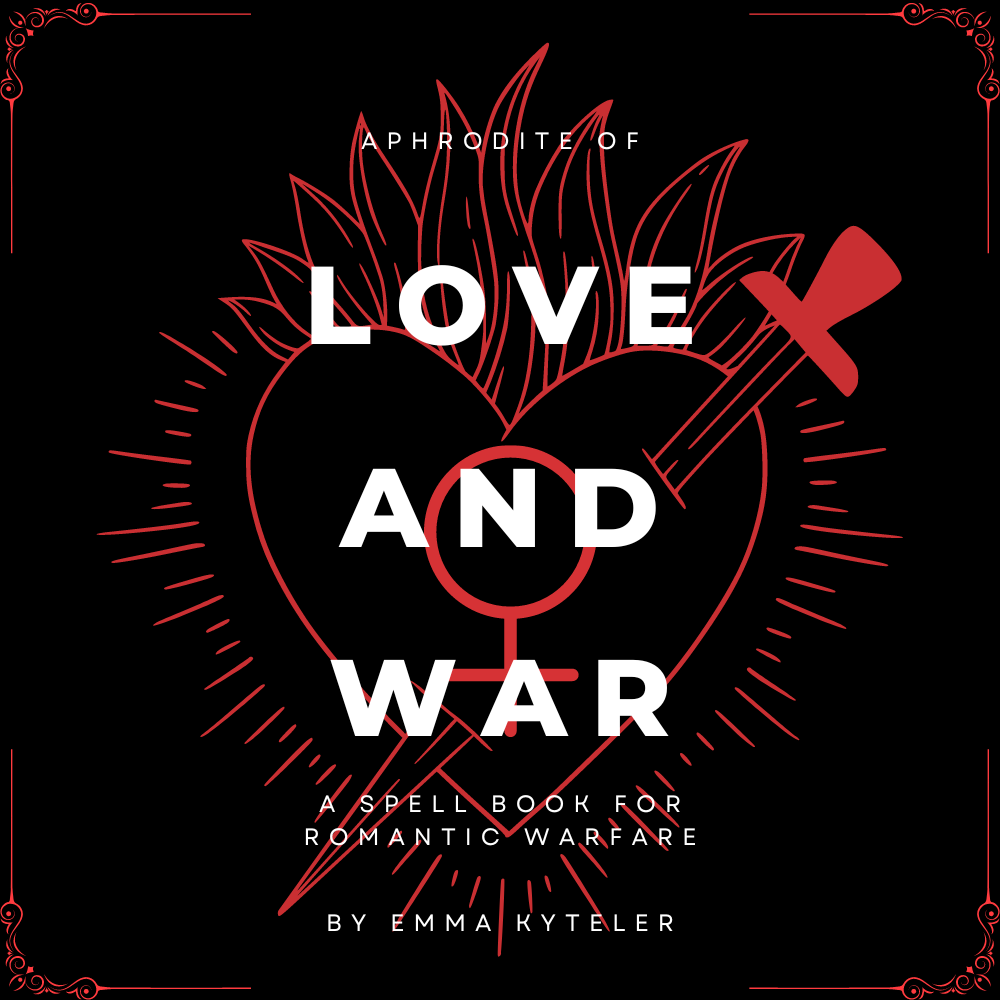
This comprehensive book delves into the dual energies of Aphrodite, empowering you to manifest your desires in matters of the heart and personal conflicts. Explore the depths of love and war magic as you learn advanced techniques such as sigil creation, candle magic, and divination to deepen your connection with Aphrodite and gain insight into romantic situations. Discover a diverse collection of spells that range from attraction and deepening connections to conflict resolution and protection. Embrace the dark aspects of love while honoring the nurturing and healing energies of Aphrodite, and learn to wield baneful magic with respect and caution. With its reader-friendly layout and comprehensive features, "Aphrodite of Love and War: A Spell Book for Romantic Warfare" is your ultimate companion on a transformative journey of self-discovery and empowerment.
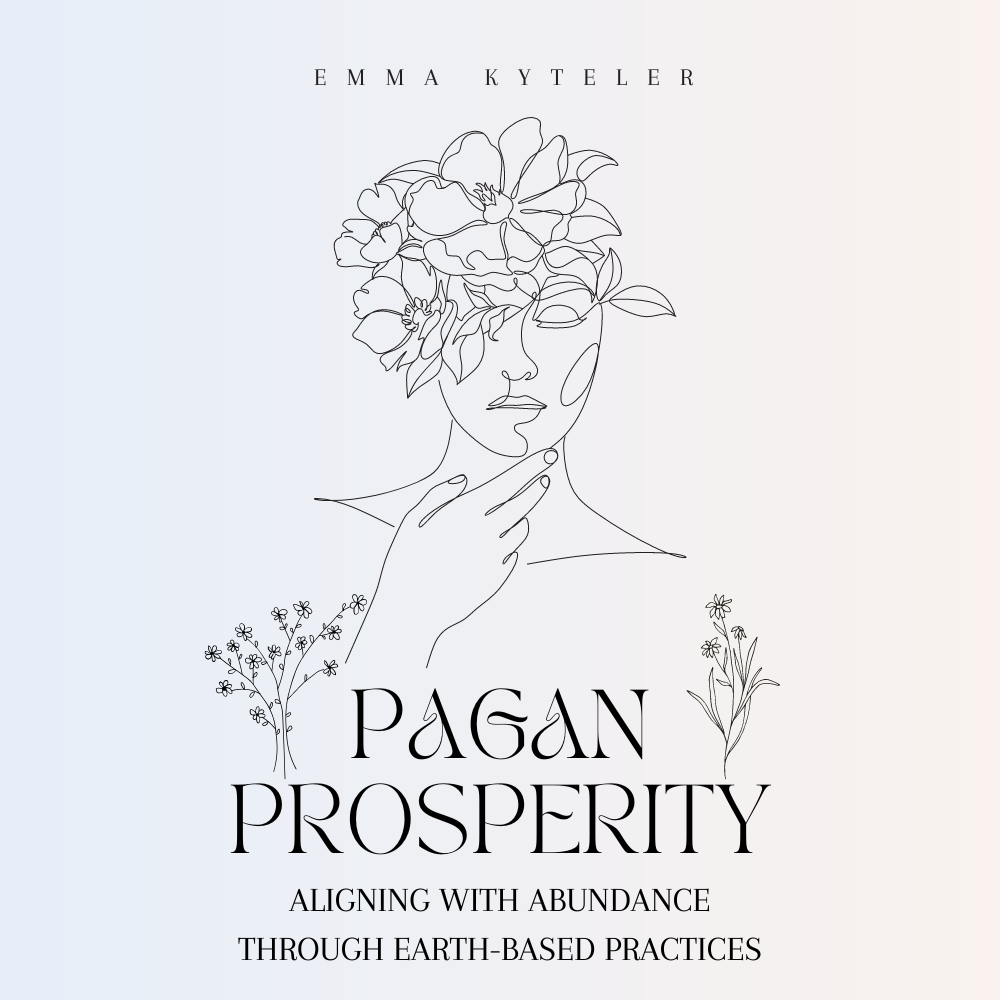
Unearth Your Wealth: Harness the Power of Saturn and the Earth Element for Abundant Prosperity
Have you ever wondered if the stars and the elements could unlock your true financial potential? If you're ready to embark on a transformative journey, our book "Unearth Your Wealth: Harness the Power of Saturn and the Earth Element for Abundant Prosperity" is the mystical guide you've been waiting for!
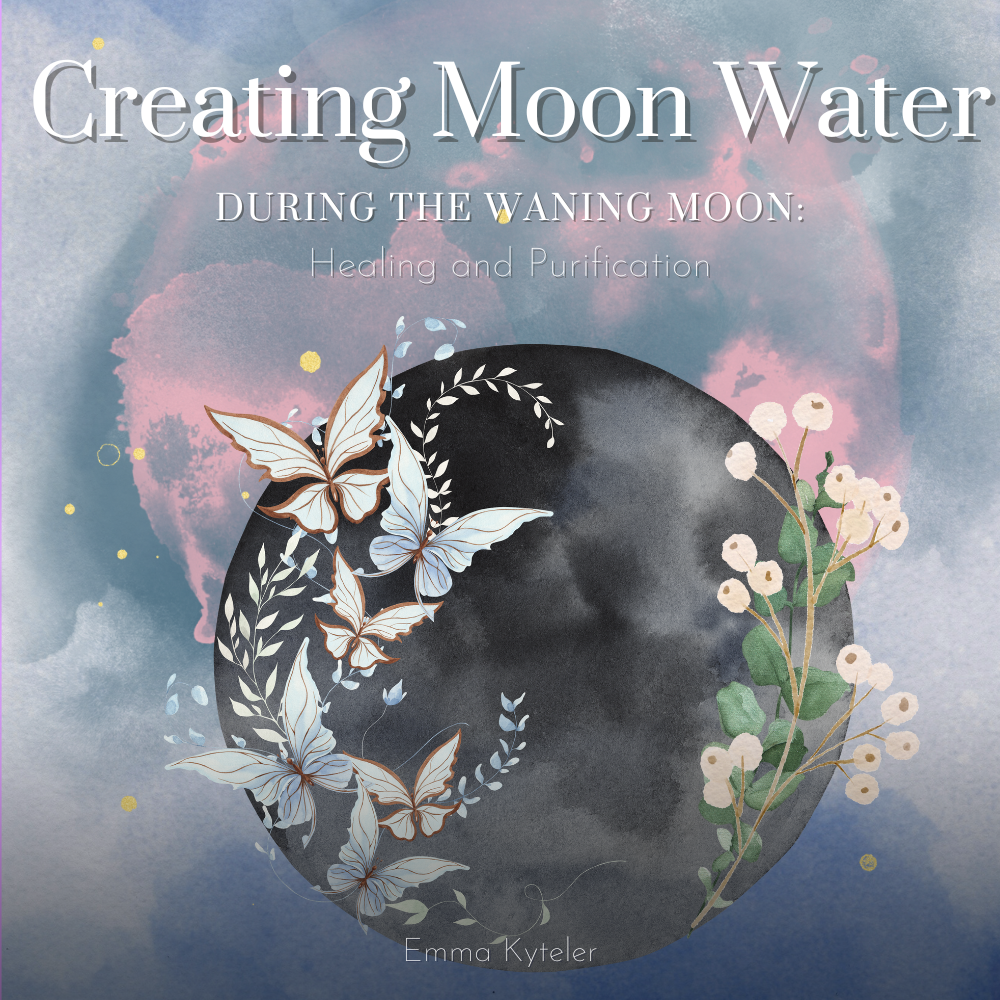
Unveil the power of the celestial bodies and explore a side of witchcraft often misunderstood and underused. "Creating Moon Water During the Waning Moon: Healing and Purification" is an all-inclusive guide that will transform your magical practice and daily life.
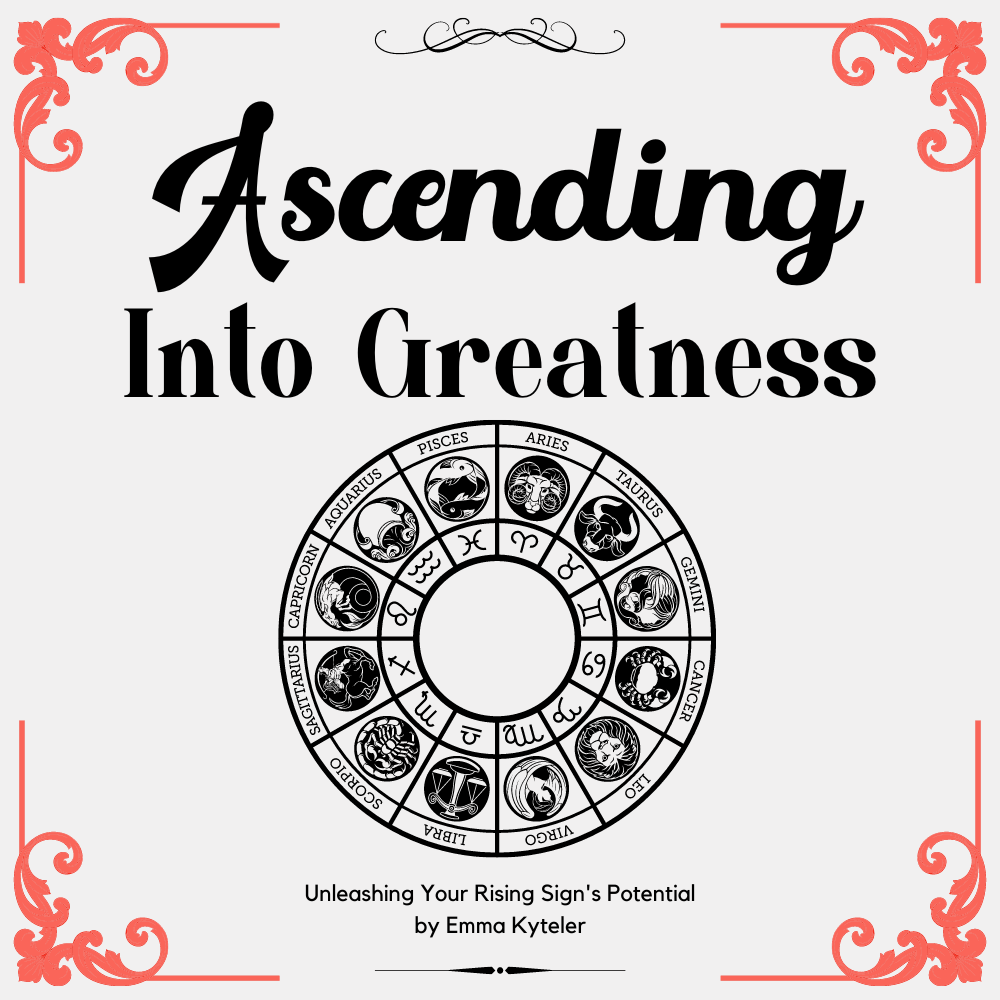
Dive into the pages of "Rising Signs Unveiled: Your Astrological Mask and Its Power" to decode the mystery that is YOU! This comprehensive guide uncovers the hidden depths of the twelve Rising Signs, from the trailblazing Aries to the dreamy Pisces, and everyone in between.
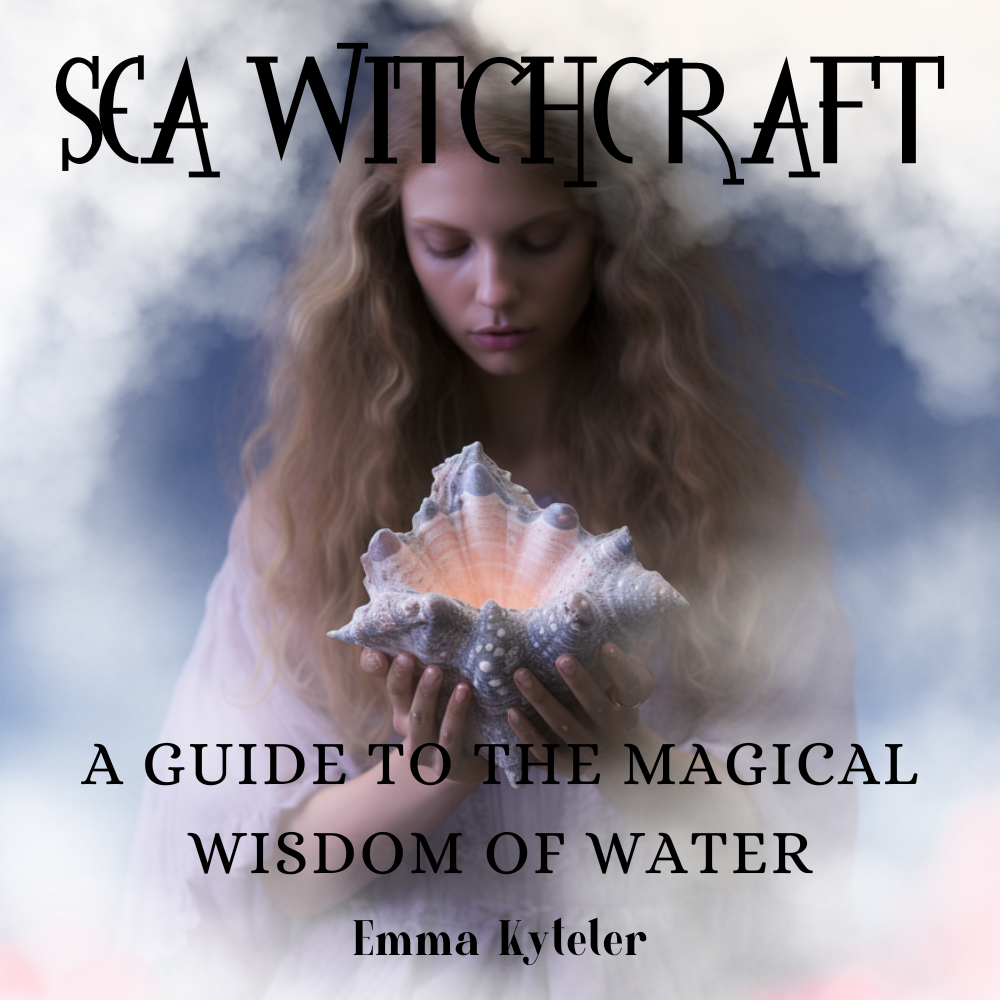
Are you called to the mystic arts of the sea? Do you feel a deep connection to water and long to learn from the endless wisdom of the oceans? Then this comprehensive guide to sea witchcraft is for you.

